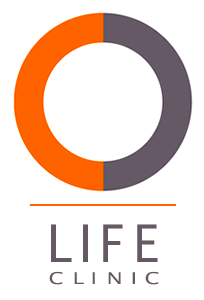What is natural cycle IVF?
Natural cycle IVF (NC-IVF) is a treatment similar to traditional IVF but without the use of medications for ovarian stimulation. It is a procedure that focuses on the quality of egg/s, rather than the quantity, working within your body’s natural menstrual cycle. The egg/s that are naturally produced during the monthly cycle are collected and fertilised in the laboratory. The embryo is then returned to the uterus by embryo transfer.
The term “natural” is only related to the menstrual cycle. The medical procedures involved, such as ultrasound scans, blood tests, egg collection, oocyte fertilisation (e.g. insemination or ICSI) in the laboratory and embryo transfer, are the same as those used in traditional, stimulated, IVF.
Natural Cycle IVF is advisable to be repeated for several cycles, in order to increase the number of the created embryos to increase the chances of finding the right embryo for a successful pregnancy. Research has shown that about 3 NC-IVF therapy cycles are required to achieve the same pregnancy rate as with one stimulated IVF therapy (Sunkara et al., 2016).

How is natural cycle IVF different from conventional IVF?
If we consider the normal, natural monthly cycle of a woman, the uterus releases from ‘storage’ a number of eggs. Usually only one egg matures and is released (ovulation) and the remaining eggs die off. The reason only one egg matures is because the hormones that cause eggs to grow are in short supply. In conventional, stimulated IVF, an injection of these hormones is given to cause all the eggs to grow from that months batch. These are then collected and fertilised in the laboratory ‘in vitro’ and some will develop into viable embryos. The best embryo/s are then placed back into the woman’s uterus and any others others can be frozen for later use. In general, contemporary IVF offers a higher chance of pregnancy because it allows selection of the best-quality eggs first.
In natural cycle IVF, the woman grows an egg ‘naturally’ without the use of any drugs during her menstrual cycle. Generally only one egg develops, sometimes two. Once mature, the egg is collected and fertilised in the laboratory in the same way as in conventional IVF.
Natural cycle IVF and conventional IVF are completely different forms of treatment and should not be considered as competing treatments, but rather as complementary IVF treatments that expand the treatment spectrum in terms of individualised, patient-oriented treatment. The indications for or against NC-IVF are based on the individual wishes of each couple as well as on their considered chances of success.
To achieve the highest possible chances of success, natural cycle IVF is an approach which requires particular medical expertise. We offer this approach as a serious alternative to contemporary IVF when the chances of success and personal wishes of the patient make this the most sensible and effective option to successfully achieve pregnancy. The first step would be a complete investigation for each woman, or couple, and according to the findings we will recommend the most appropriate treatment.
When might natural cycle IVF be right for me?
There are three groups of women who may wish to consider natural cycle IVF.
- For women considered “poor responders” to conventional high-stimulation IVF (e.g. produced fewer than three eggs). This includes women with a very low ovarian reserve or with reduced ovarian function and therefore having no or poor response with stimulation. Usually this effects women of older reproductive age. In these cases, natural cycle IVF provides the opportunity to continue with the IVF process, even when ovarian stimulation has repetitively failed to produce multiple embryos. However, natural cycle IVF is not necessarily the recommended treatment for a “poor responder” if multiple ovarian stimulation is still possible.
- For women with low ovarian or egg reserve, particularly for younger women with early ovarian failure or irregular monthly cycles.
- For women who are at high risk of hormone-dependent cancers due to their family history.
- For women who cannot tolerate or do not desire to take hormonal therapy in order to conceive can still benefit from the IVF process.
Advantages of Natural Cycle IVF:
- No use of drugs for ovarian stimulation.
- No need for sedation during the procedure.
- Simpler treatment compare to contemporary IVF.
- Higher quality eggs – In some cases, natural cycle IVF eggs can be of superior quality to eggs derived from stimulated cycles.
- Lower cost – the costs are significantly lower compared to contemporary IVF per cycle due to the no stimulating medications being required and avoidance of anaesthesia.
- Less health risks – if you are at high risk for oestrogen-related cancers due to your family medical history, or have endometriosis or other medical conditions such as melanoma or clotting problems.
- Reduced side effects and emotional burden – studies have shown that high-stimulation in conventional IVF can have a significant physical and psychological effect, or ‘IVF stress’, on patients. Some women, and couples, may find that natural cycle IVF is a much less stressful experience.
Disadvantages of Natural Cycle IVF:
- Long-term treatment until the embryo transfer
- Lower chances of success compared to a conventional, stimulated, IVF cycle.
- Multiple egg collections are usually necessary.
- There are usually no surplus embryos to cryopreserve (to freeze).



